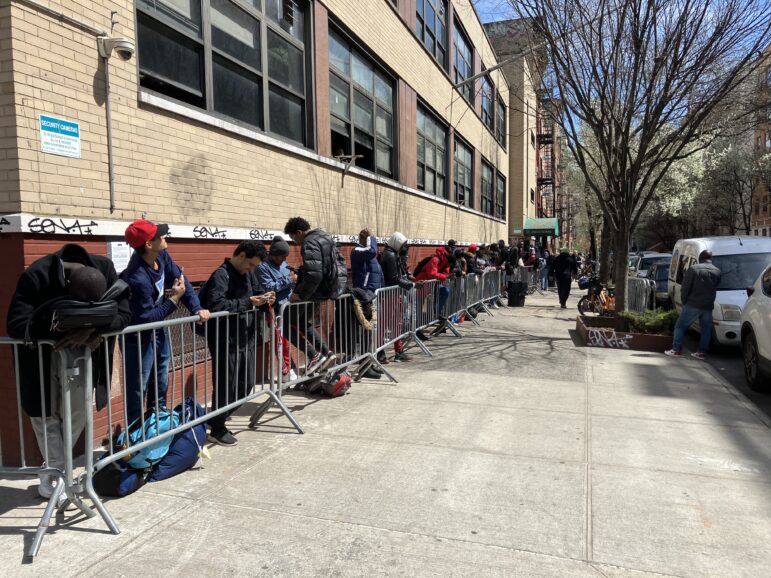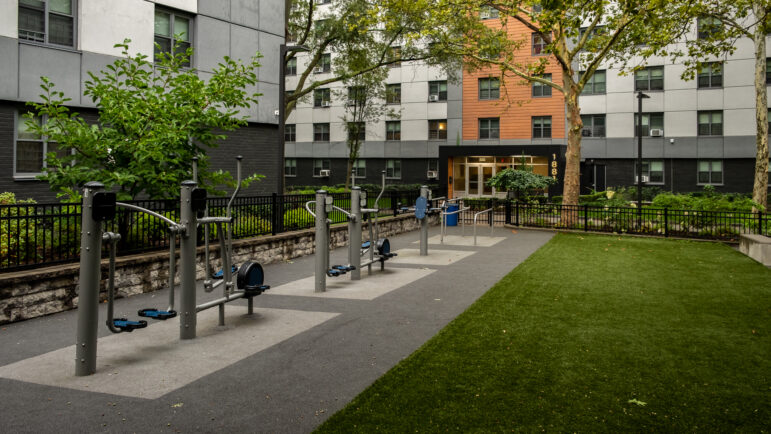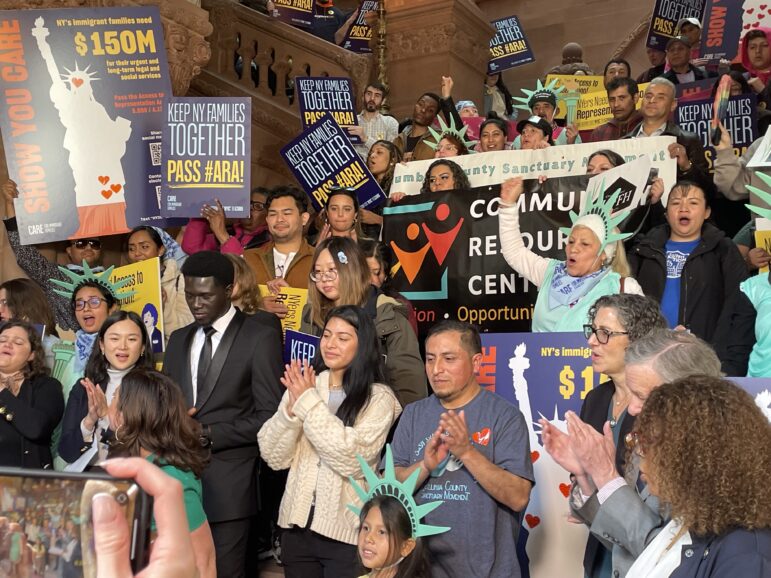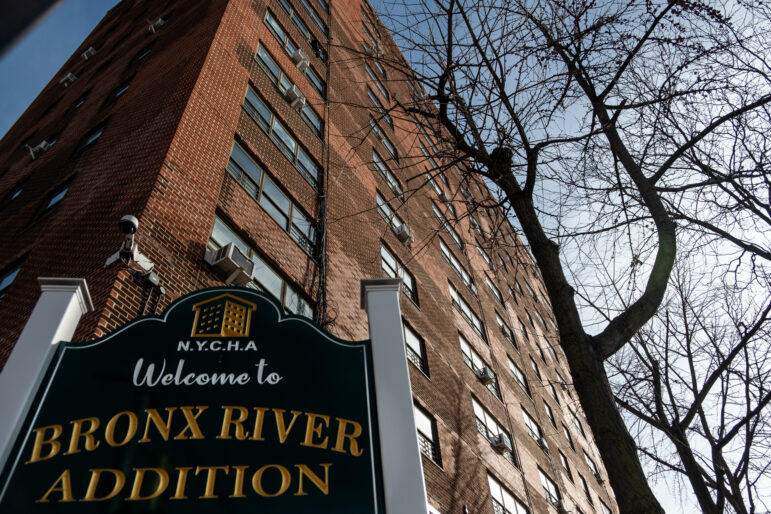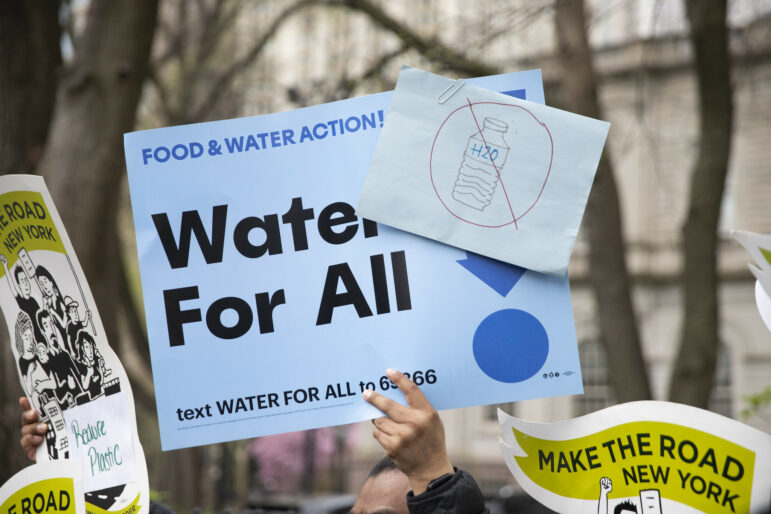Karim Lopez sees the Bush administration’s call for war as a double threat: An invasion of Iraq, he says, would also be an attack on his Washington Heights neighborhood.
“[Military] recruitment is aimed at poor communities of color around the cities,” he says. “It’s those young people who are going to fight and die.” To drive home the point that, as Tip O’Neill once said, “all politics is local,” the 25-year-old helped found Uptown Youth United for Peace and Justice in the weeks after September 11. The group, which now claims about 200 members under the age of 25, is part of a growing trend of New Yorkers who are fighting the prospect of war by arguing that their neighborhoods will suffer.
On February 15, members of local groups like Lopez’s were part of the estimated 250,000 protesters who jammed the East Side of Manhattan to rally against the Bush administration’s plans to invade Iraq.
“Money for jobs, not for war! Money for schools, not for war!” Lopez chanted as he marched through Harlem on his way to the rally. Passing drivers honked their horns in sympathy and passengers whooped and whistled from open windows.
Tough economic times already threaten neighborhood resources like senior centers, literacy programs and police, not to mention broader initiatives like college tuition assistance, community activists like Lopez argue.
If there is war, “There won’t be money for schools, there won’t be money for health,” predicts Frank Farkas of Bronx Action for Justice and Peace, a group of northwest Bronx residents who came together after the Trade Center attacks.
These fears have inspired a proliferation of small, community-based anti-war groups. “They want a way to connect with their own community or others beyond their regular interest groups,” says Saulo Colon of United for Peace and Justice, which helped organize the February rally. The group claims nearly 150 local organizations participated in the event.
Even groups that existed long before September 11 have been transformed by the fast pace of the Bush administration’s drive toward war.
To express his own concerns, Donald Green, 56, of the South Bronx recently joined Mothers on the Move, a local parent advocacy group that added anti-war efforts to its roster of activities over the last year. “They’re talking about weapons of mass destruction,” he says, but with drug dealing a regular occurrence in the hallways of his apartment building, he adds, “We’ve got mass destruction right here.”
Of course, the concerns of these local groups are about more than just war’s potential effects on New York neighborhoods.
“There are going to be children who will be orphans on both sides,” says Silkia Martinez, an organizer for Mothers on the Move. “There are ways to negotiate without having to go to war.”


